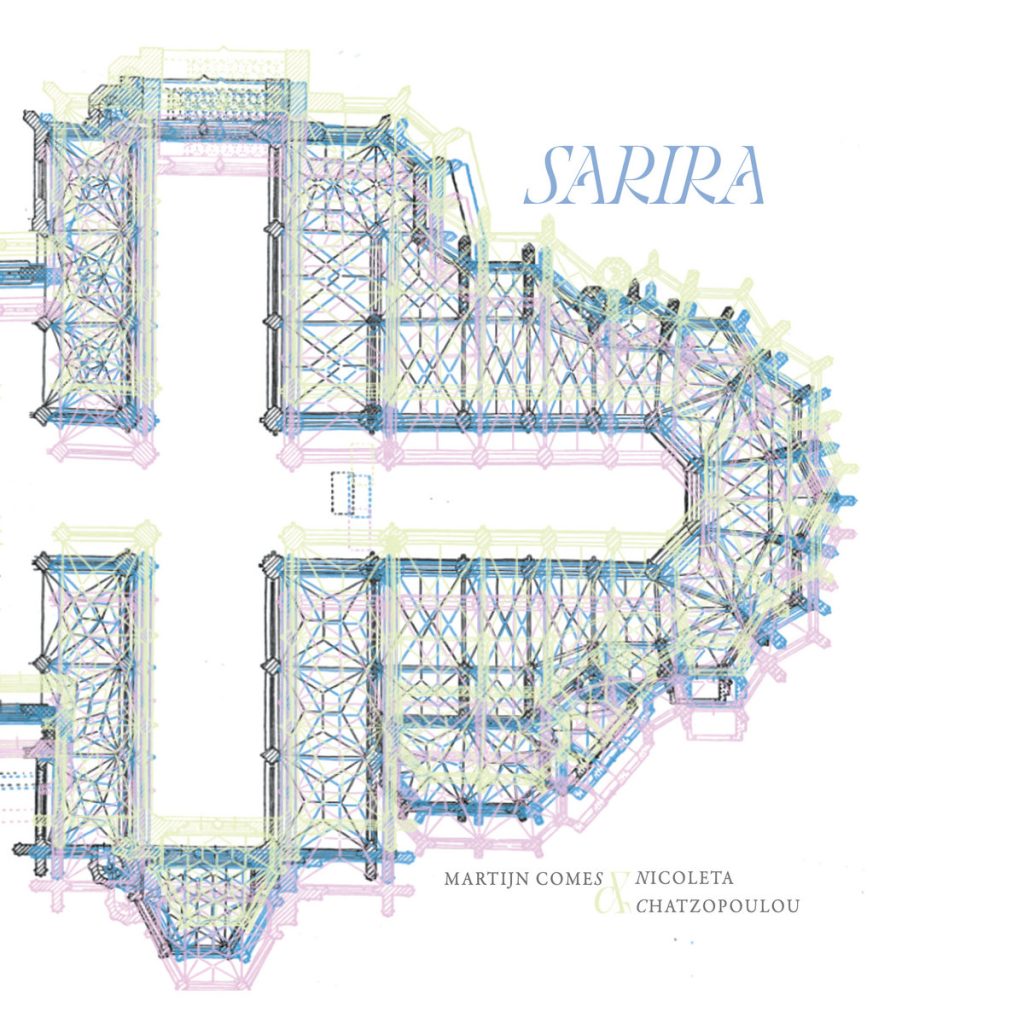We’re very happy to share that Martijn Comes has released his commissioned performance for carillon from our Resonance event done in collaboration with Rewire Festival as part of the Rijksdienst voor Religieus Erfgoed’s Kunst & Kerk program.
Comes was commissioned to compose a piece for the carillon at the Stevenskerk in Nijmegen plus a composition for processed carillon recordings. The result release, Sarira is available via UK label, The Crystal Cabinet and is available here on cassette and digital version.
Side A begins with the RE:VIVE commissioned work from Comes titled: ‘Radiance, Time’. Created especially for Rewire festival and performed live at the Stevenskerk, Nijmegen with Malgosia Fiebig performing carillon. Comes who has a working fascination with time says: ““A lot of world problems at the moment deal with time: the shortage of it in society and the 24 hour social media economy, the climate crisis, the spiritual crisis, chronological time vs ‘natural time’, the time we need for loss of loved ones, the search for meaning, time for health.”
Side B moves us into a new work ‘Bicameral Mind’, a truly beautiful and meditative collaboration with composer, researcher and viol de gamba performer, Nicoleta Chatzopoulou. A piece that interweaves the two musician’s styles beautifully.
“On Śarīra, Martijn Comes and Nicoleta Chatzopoulou went the distance. Comes climbed the bell tower of a church, reflected on the bible and discussed life and death with a reverend and collaborated with classical musicians. Both composers walked the border between noise and music and translated the sounds of 15th century instruments into the present. The result is a two-part collaborative work of meditative electro-acoustic compositions perhaps the most intimate and tender work to date by the two composers.
For A side “Radiance”, Comes composed the music specifically for an instrument that plays a niche role at best in the current music landscape: The Carillon, a keyboard instrument with bells instead of strings. Its sound is ethereal and majestic all at once – a quality that Comes made ample use of. The first part of “Radiance” presents the Carillon sounds as performed by Malgosia Fiebig; in the the second, he moulds, stretches and purifies the timbres of site-specific bell sounds into rich, cavernous reflections.
To complement the material, Comes also ascended the steps of the Bavo church in the Dutch city of Haarlem to record the famous “Damiaatjes” – two bells that have been in use for 450 years. The residing reverend gave his permission after an in-depth conversation with the composer about his desire to base a piece on Ecclesiastes 3:1-8 (“To every thing there is a season, and a time to every purpose under the heaven”).
For “Bicameral Mind”, Comes collaborated with viola da gamba specialist, composer and sound artist Nicoleta Chatzopoulou. Co-composer Chatzopoulou’s original lines and bowings remain recognizable, juxtaposed against mysterious electronic transformations, Comes’s guitar notes and the eery rattling of tuning pegs. The subtle twang of the viola, and the surprisingly rhythmical quality of the performance add up to an experience that is equally of this and another world.
Comes’s ongoing fascination for time and the more specific Leitmotif of Sacred spaces connect these works. Sacred spaces can be taken literally (as in: a church, architecture in general) or figuratively here, with the music constantly leading the listener inward, where seemingly mundane sounds are sublimated into something more profound.
This should not distract from the immersive aspects of the music. At the end of the day, Śarīra may have been based on a concept for which Comes and Chatzopoulou were willing to do the work and walk the walk. But its main point was not only to offer spaces for thought, but to create gorgeous music as well.” – Tobias Fisher. Author and journalist.
